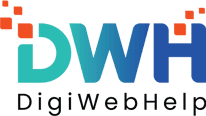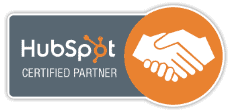
HubSpot vs Act-on
Act-On and HubSpot are both popular marketing automation platforms used by businesses to streamline and optimize their marketing efforts. While they share some similarities in terms of features and functionality, they also have distinct characteristics that may cater to different business needs and preferences.
Act-On and HubSpot share some similar capabilities, such as email marketing, lead generation, marketing automation, and analytics. However, HubSpot’s all-in-one platform includes additional features like content creation, customer service, and a fully integrated CRM, making it a comprehensive solution for inbound marketing, sales, and customer support. Act-On, on the other hand, is a focused marketing automation platform with a user-friendly interface, making it suitable for smaller businesses looking for essential marketing automation features. The choice between the two will depend on specific business needs and preferences.
HubSpot
HubSpot is an all-in-one inbound marketing, sales, and customer service platform that helps businesses attract, engage, and delight customers. Founded in 2006, HubSpot has become a leading player in the field of inbound marketing and customer relationship management (CRM). The platform offers a wide range of tools and features to assist businesses in their efforts to grow, manage customer relationships, and achieve marketing and sales success.
Act-on
Act-On is a comprehensive marketing automation platform designed to help businesses attract, engage, and convert customers across various digital channels. It provides a suite of tools and features that enable marketers to streamline and optimize their marketing efforts, ultimately driving better results and ROI.
HubSpot vs Act-on Features: An Overview
HubSpot offers a versatile all-in-one platform encompassing marketing, sales, and customer service tools. It integrates seamlessly, enabling businesses to manage their entire customer journey effectively. In contrast, Calendly specializes in scheduling and appointment booking, streamlining time management, and enhancing client interactions. HubSpot provides a comprehensive solution for various business needs, while Calendly excels in simplifying scheduling processes. Choosing between them depends on whether you require a comprehensive business management suite or a dedicated scheduling tool to optimize time utilization and client engagements. Evaluate your priorities and select the solution that aligns with your specific requirements.
| Feature | HubSpot | Act-On |
|---|---|---|
| Email Marketing | Yes | Yes |
| Lead Generation | Yes | Yes |
| Lead Scoring | Yes | Yes |
| Marketing Automation | Yes | Yes |
| Website Visitor Tracking | Yes | Yes |
| Social Media Management | Yes | Yes |
| Content Creation | Yes | No |
| CRM Integration | Yes | Yes |
| Sales Automation | Yes | No |
| Customer Service | Yes | No |
| All-in-One Platform | Yes | No |
| Reporting and Analytics | Yes | Yes |
HubSpot vs Act-on Features: Detailed Comparison
DigiWebHelp's Recommendations:
As a dedicated marketing and technology consulting firm, DigiWebHelp is committed to providing well-informed recommendations tailored to the unique needs and objectives of our clients. When comparing HubSpot and Act-On, our insights lead to the following suggestions:
HubSpot: A Holistic Business Management Solution For businesses seeking an all-in-one platform that seamlessly integrates marketing, sales, and customer service functions, DigiWebHelp recommends HubSpot. This comprehensive platform is ideal for organizations aiming to streamline their entire customer journey, enhance collaboration between departments, and leverage powerful reporting and analytics. HubSpot’s versatility accommodates a broad range of business sizes and needs, making it well-suited for those seeking an integrated approach to business management.
Act-On: Specialized Marketing Automation and Lead Nurturing If your primary focus centers around advanced marketing automation, lead generation, and targeted campaigns, DigiWebHelp suggests Act-On as a specialized solution. Act-On excels in creating personalized marketing strategies, segmenting audiences, and guiding leads through the sales funnel. It is particularly suitable for businesses seeking specialized marketing automation capabilities and looking to enhance their lead nurturing and engagement strategies.
Evaluate Your Business Objectives: When making a decision between HubSpot and Act-On, carefully assess your organization’s specific goals, operational requirements, and growth priorities. Consider whether you need a comprehensive suite of tools for end-to-end business management or a specialized solution to elevate your marketing automation and lead nurturing efforts.
Integration and Scalability: Assess how each platform integrates with your existing systems and evaluates their scalability to accommodate your future growth. HubSpot’s integration capabilities facilitate seamless collaboration and data sharing across departments, while Act-On’s specialization focuses on enhancing marketing automation and lead management.
User Experience and Customization: Consider the level of user experience and customization that aligns with your business preferences. HubSpot offers a balance between user-friendliness and customization, catering to a wide range of users. Act-On provides a higher degree of customization, catering to businesses with intricate marketing automation requirements.
Budget Considerations: Evaluate the pricing models of both platforms and align them with your budget constraints. HubSpot offers tiered plans based on features and the number of contacts, while Act-On’s pricing is based on usage and specific features. Choose the option that best fits your financial considerations and aligns with your strategic priorities.
Scope and Versatility
HubSpot:
An all-in-one platform encompassing marketing, sales, and customer service tools, catering to end-to-end business management and customer interactions.
Act-on:
Focused on marketing automation, Act-On specializes in creating personalized and targeted marketing campaigns, with an emphasis on lead generation and nurturing.
User Interface and Accessibility
HubSpot:
Renowned for its user-friendly interface, HubSpot's intuitive design accommodates users of various skill levels across marketing, sales, and customer service functions.
Act-on:
Provides an accessible user interface designed for marketers, ensuring efficient campaign creation, automation, and analysis.
Marketing Automation and Personalization
HubSpot:
Offers a versatile marketing automation suite, empowering businesses to create behavior-triggered workflows, personalized content, and lead nurturing strategies.
Act-on:
Specializes in advanced marketing automation, enabling users to build complex automated campaigns, segment audiences, and deliver tailored messaging.
Sales Management and CRM Integration
HubSpot:
Integrates basic sales management functionalities with its CRM, providing tools for contact management, deal tracking, and pipeline management.
Act-on:
Focuses primarily on marketing automation but can be integrated with CRMs to enhance lead management and alignment between marketing and sales teams.
Customer Service Tools
HubSpot:
An all-in-one platform encompassing marketing, sales, and customer service tools, catering to end-to-end business management and customer interactions.
Act-on:
Focused on marketing automation, Act-On specializes in creating personalized and targeted marketing campaigns, with an emphasis on lead generation and nurturing.
Reporting and Analytics
HubSpot:
Offers robust reporting and analytics across marketing, sales, and customer service functions, providing insights for data-driven decision-making.
Act-on:
Provides comprehensive marketing analytics, helping users measure campaign effectiveness, track lead engagement, and assess ROI.
Customization and Scalability
HubSpot:
Offers moderate customization options, striking a balance between flexibility and user-friendliness for businesses of varying sizes.
Act-on:
Provides a high degree of customization, catering to businesses seeking tailored marketing automation strategies and workflows.
Integration with Third-Party Tools
HubSpot:
Offers an extensive ecosystem of integrations, enabling seamless connections with various third-party applications and services.
Act-on:
While not as expansive as HubSpot, Act-On offers integrations with popular CRM systems and other tools to enhance marketing capabilities.
Scope and Versatility
User Interface and Accessibility
Marketing Automation and Personalization
Sales Management and CRM Integration
Customer Service Tools
Reporting and Analytics
Customization and Scalability
Integration with Third-Party Tools
Conclusion
In conclusion, DigiWebHelp’s recommendations for selecting between HubSpot and Act-On hinge on your specific business needs and growth aspirations. HubSpot offers a comprehensive suite of tools for holistic business management and collaboration, while Act-On specializes in advanced marketing automation and lead nurturing. Our experienced consultants are here to guide you through the evaluation process, helping you make an informed decision that empowers your business to achieve its objectives effectively. Collaborate with DigiWebHelp to unlock the full potential of your chosen platform and drive meaningful results in your marketing and growth initiatives.
We're Experts in
Solving Complex Issues
With Tailored Solutions
We collaborate wtih your team and understand your vision to create a comprehensive and strategic plan tailored to your business needs.
Our team helps integrate all of your systems so you can have a unified platform to access data from one place.
We work on executing your tailored plan to help your business reach its goals.
From pulling reports and analyzing your data, we continue to optimize your plan.
FAQs
Act-On is a focused marketing automation platform, while HubSpot offers an all-in-one marketing, sales, and customer service solution. HubSpot provides a more comprehensive suite of tools, including CRM, sales automation, content creation, and customer support, whereas Act-On focuses primarily on marketing automation features.
Both Act-On and HubSpot serve small businesses well, but Act-On is specifically designed for small to mid-sized businesses (SMBs). Its user-friendly interface and core marketing automation features make it a great choice for smaller marketing teams with straightforward needs.
Yes, HubSpot offers a free version of its platform, known as the “HubSpot Free CRM.” This free version includes basic CRM functionalities, email marketing, and limited marketing automation features. It can be a good starting point for small businesses with tight budgets.
HubSpot is well-known for its extensive integration capabilities. It offers a wide range of integrations with third-party applications, allowing businesses to connect various tools and create a more cohesive marketing and sales ecosystem. Act-On also integrates with popular CRMs like Salesforce but may have a more limited selection of integrations compared to HubSpot.
Both Act-On and HubSpot offer tiered pricing plans, and the costs can vary depending on the specific features and number of contacts you need to manage. Generally, HubSpot’s pricing may be higher due to its broader feature set, but it’s essential to compare the plans and features to see which one aligns better with your budget and requirements.
Both Act-On and HubSpot provide customer support and resources to help users get the most out of their platforms. HubSpot offers extensive support through its knowledge base, community forums, webinars, and one-on-one support options. Act-On also provides various resources, including training videos, webinars, and a support center, to assist users with onboarding and troubleshooting
HubSpot is known for its extensive integration capabilities and offers a wide range of integrations with popular third-party tools and services. This flexibility allows businesses to connect HubSpot with their existing tech stack seamlessly. While Act-On also integrates with major CRM systems like Salesforce, it may have a more limited selection of integrations compared to HubSpot.
Let’s Talk
Enter your email address so we can get connected.


